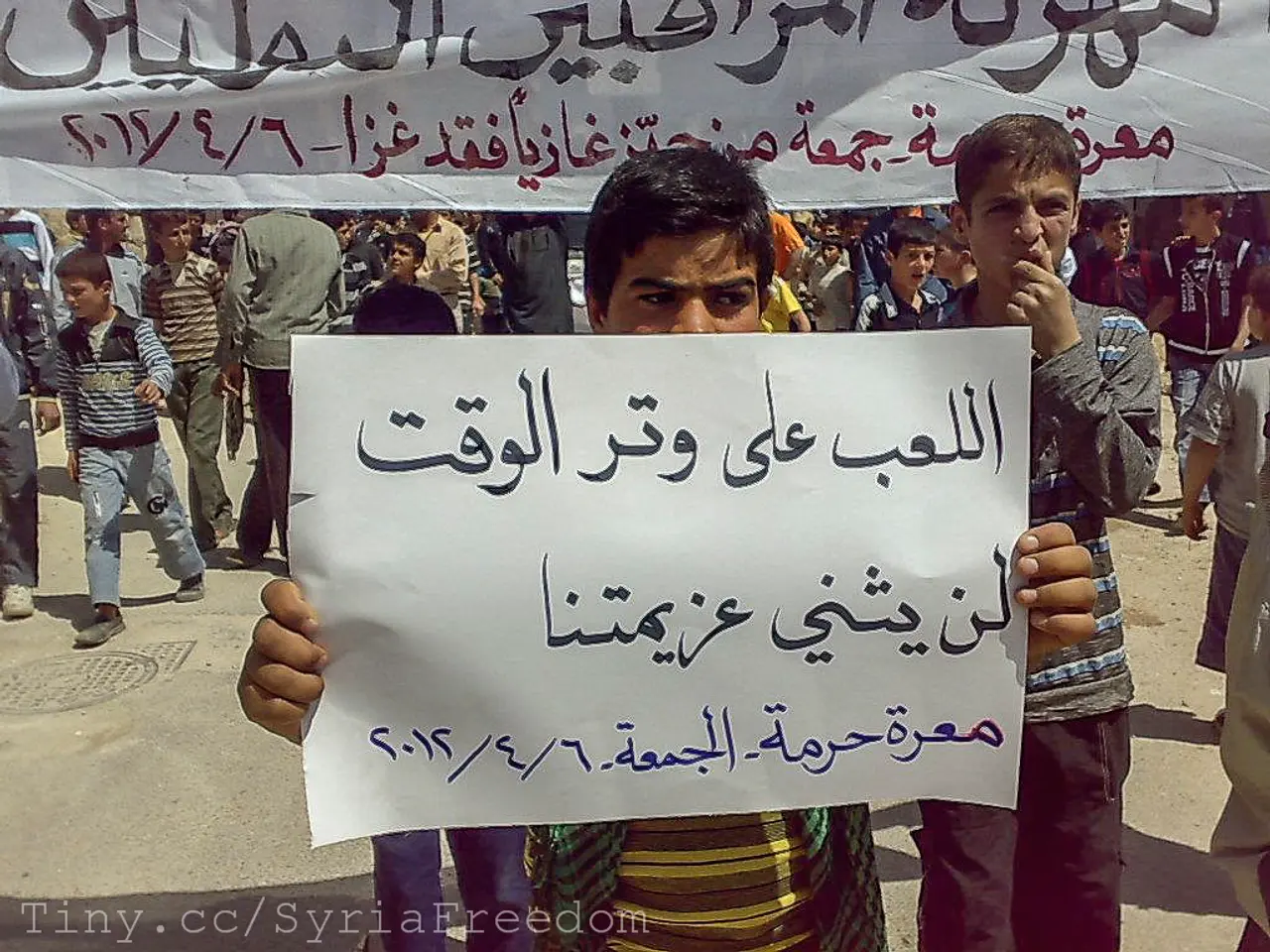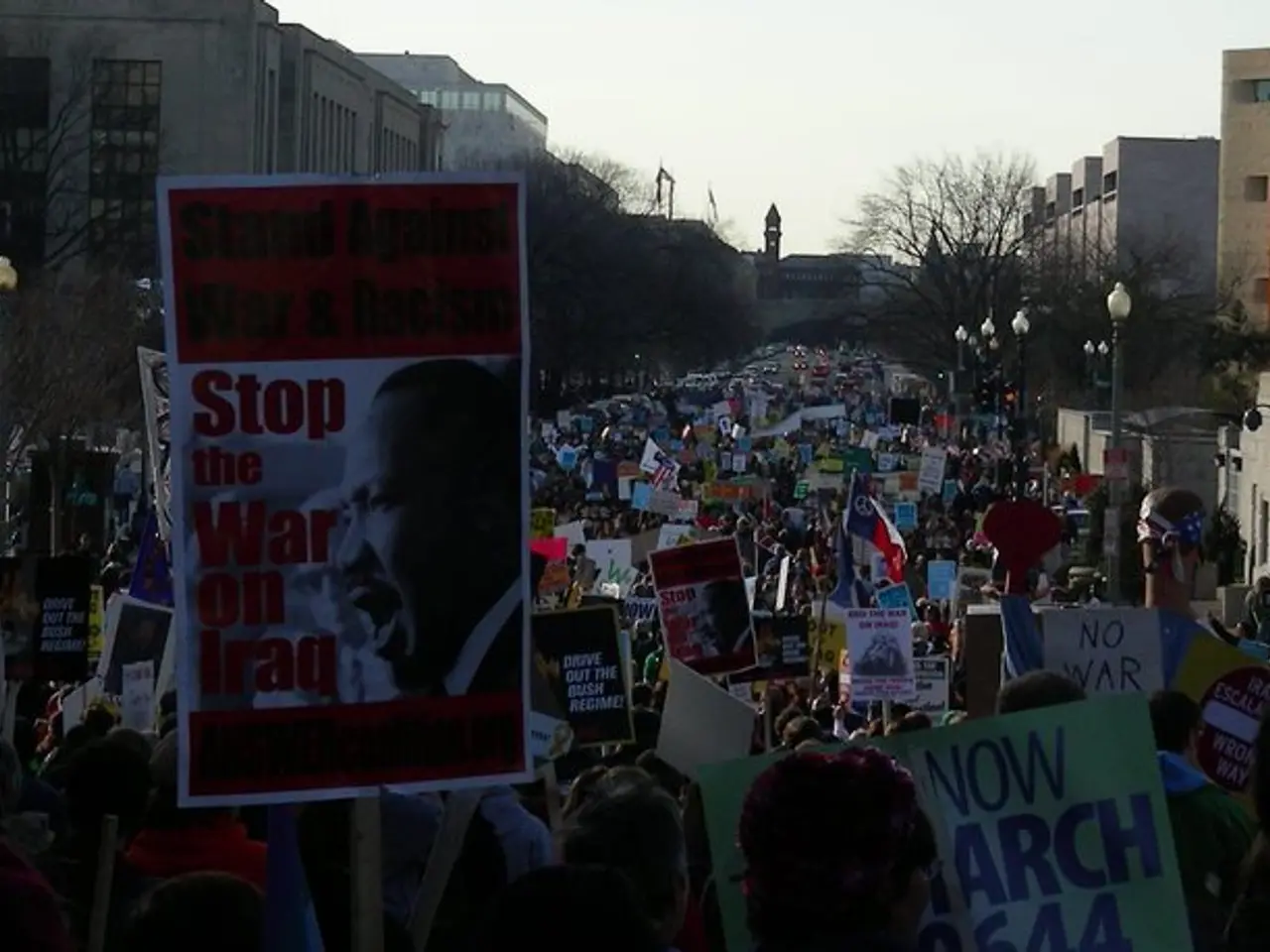Lithuanian Foreign Minister remains ambiguous regarding state recognition for Palestine
In a significant shift in international relations, Ireland, Norway, and Spain announced the recognition of the Palestinian state in May 2024. This move was part of a broader trend, as nearly 150 countries have now acknowledged Palestinian statehood. As of August 2025, 147 out of the 193 United Nations member states have recognised the State of Palestine, representing over 75% of all UN members.
Key countries, such as France, Malta, Canada, and the United Kingdom, are planning to formalize their recognition at the United Nations General Assembly session in September 2025. Canada, however, has stipulated conditions for its recognition, including governance reforms by the Palestinian Authority, general elections excluding Hamas participation, and demilitarization of the Palestinian state.
The positions on recognition vary. Many Arab and developing countries have longstanding recognition and support for Palestine, often aligning with Arab League and Organization of Islamic Cooperation (OIC) positions. Western countries like Canada and the UK are moving cautiously, linking recognition to political and security reforms. Israel strongly opposes new recognitions, viewing them as rewards for Hamas' actions.
France plans to recognise the Palestinian state at a UN conference in New York in June. This move follows early April's expression of intent by French President Emmanuel Macron, which reportedly angered Israel. Macron hopes that French recognition will encourage other countries to follow, and he also suggests that countries which do not recognise Israel should do so.
The Lithuanian government's program envisions supporting a two-state solution between Israel and Palestine. The Lithuanian foreign minister, Kestutis Budrys, has expressed that Lithuania could potentially recognise the Palestinian state, but only at the right time and after other countries do so first. Budrys prioritises the release of hostages and a ceasefire between Israel and Hamas, and he believes that a two-state solution would ensure stability and peaceful coexistence between Israel and Palestine.
The recognitions were partially fueled by outrage at Israel's bombing of Gaza that followed the October 7, 2023, Hamas attacks. Some Arab countries like Qatar, Saudi Arabia, and Egypt advocate for Hamas to disarm, reflecting a complex regional stance supporting Palestinian statehood under certain conditions.
In summary, the recognition of Palestine by most UN member states is gaining momentum, with major Western countries planning to formalise recognition contingent upon Palestinian political reforms and security guarantees. Opposition primarily comes from Israel and some Western allies concerned with Hamas and regional stability.
- The policy-and-legislation surrounding the recognition of the Palestinian state by various countries, such as France and Canada, often includes conditions like governance reforms by the Palestinian Authority, general elections, and demilitarization of the Palestinian state.
- In the arena of general-news, discussions about recognition of the Palestinian state frequently revolve around political and security reforms in the region, with countries such as France and the UK moving cautiously while Israel strongly opposes new recognitions.






